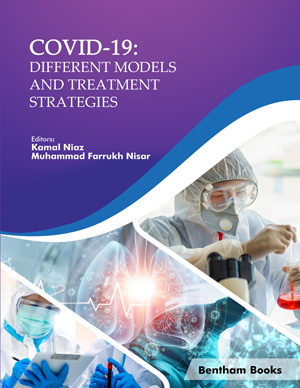Abstract
Introduction: COVID convalescent plasma (CCP) has been used as standard of care in patients all over the world. CCP is plasma collected from recently infected and currently recovered COVID-19 patients, which contains antiviral antibodies that can be used to treat patients with COVID-19. Several studies have shown a shorter hospital stay and lower mortality in patients treated with convalescent plasma in comparison with those not treated with it.
Objectives: This study aims to determine the effect of COVID convalescent plasma (CCP) on the length of hospital stay in symptomatic patients and to determine outcome of the disease in patients who were administered CCP.
Methods: This was a retrospective observational study done at a tertiary health care centre from July 2020 to May 2021, including patients who received CCP during the course of their stay in the hospital.
Results: Among 257 participants, the patients with multiple comorbidities who were administered CCP had the longest average length of stay in the hospital which was 15 days, out of which, 92 (35.8%) patients were discharged while 9 (3.5%) patients died. Also, the maximum number of deaths was observed in those patients who had no associated comorbidity, being 11 (4.3%). It was observed that earlier administration of CCP in patients (< 5 days from symptom onset) was associated with a higher number of discharges as compared to deaths.
Conclusion: Our study indicates that CCP may be efficient in treating COVID-19 patients if given in early course of the disease.
Graphical Abstract
[http://dx.doi.org/10.1172/JCI138003] [PMID: 32167489]
[http://dx.doi.org/10.7326/0003-4819-145-8-200610170-00139] [PMID: 16940336]
[http://dx.doi.org/10.1007/s10096-005-0004-z] [PMID: 16172857]
[http://dx.doi.org/10.1111/j.1469-0691.2004.00956.x] [PMID: 15214887]
[http://dx.doi.org/10.1007/s10096-004-1271-9] [PMID: 15616839]
[http://dx.doi.org/10.1186/s40064-015-1490-9] [PMID: 26618098]
[http://dx.doi.org/10.1093/cid/ciq106] [PMID: 21248066]
[http://dx.doi.org/10.1016/j.autrev.2020.102554] [PMID: 32380316]
[http://dx.doi.org/10.1038/s41586-020-2456-9] [PMID: 32555388]
[http://dx.doi.org/10.1002/jmv.25961] [PMID: 32356910]
[http://dx.doi.org/10.1073/pnas.2004168117] [PMID: 32253318]
[http://dx.doi.org/10.1101/2020.08.12.20169359]
[http://dx.doi.org/10.1093/infdis/jiaa228] [PMID: 32348485]
[http://dx.doi.org/10.1016/j.chest.2020.03.039] [PMID: 32243945]
[PMID: 33621948] [PMCID: PMC7891064] [http://dx.doi.org/10.2139/ssrn.3726179]
[PMID: 32573724] [PMCID: PMC7414593] [http://dx.doi.org/10.1182/blood.2020007079]
[http://dx.doi.org/10.1056/NEJMoa2033700] [PMID: 33406353]
[http://dx.doi.org/10.1016/j.transci.2020.102875] [PMID: 32694043]
[http://dx.doi.org/10.1093/cid/ciab317] [PMID: 33861337]






















